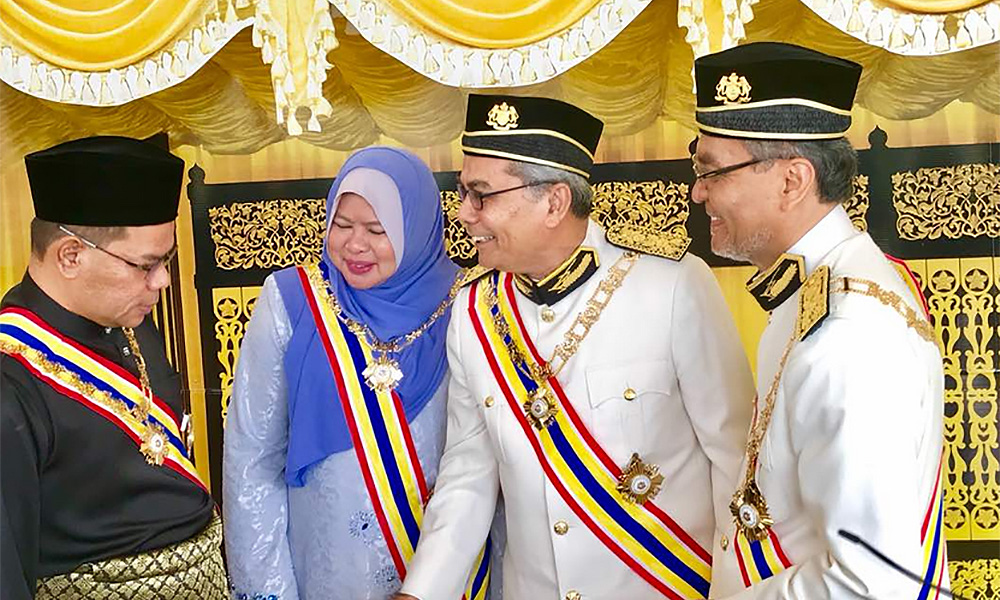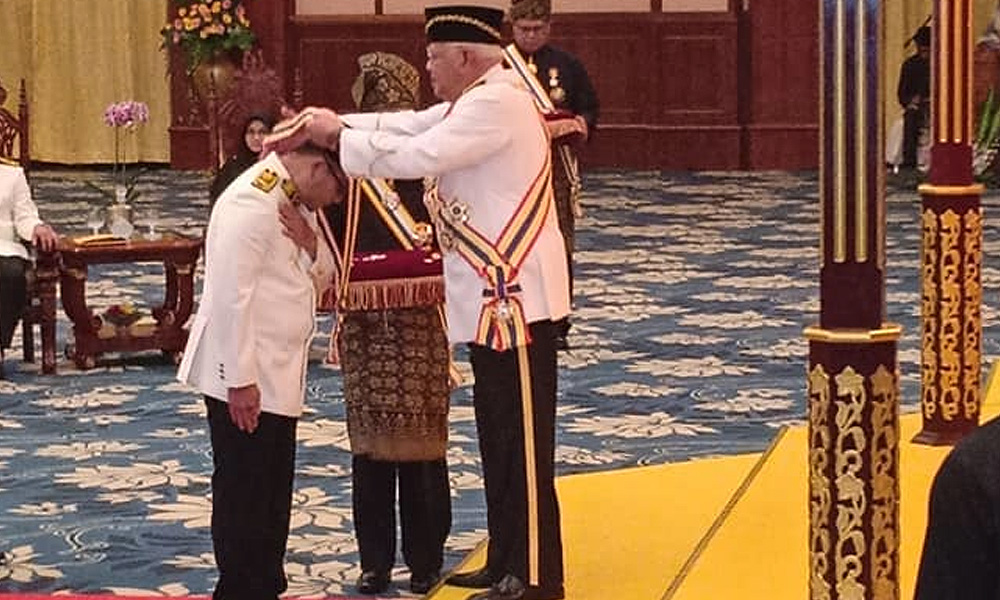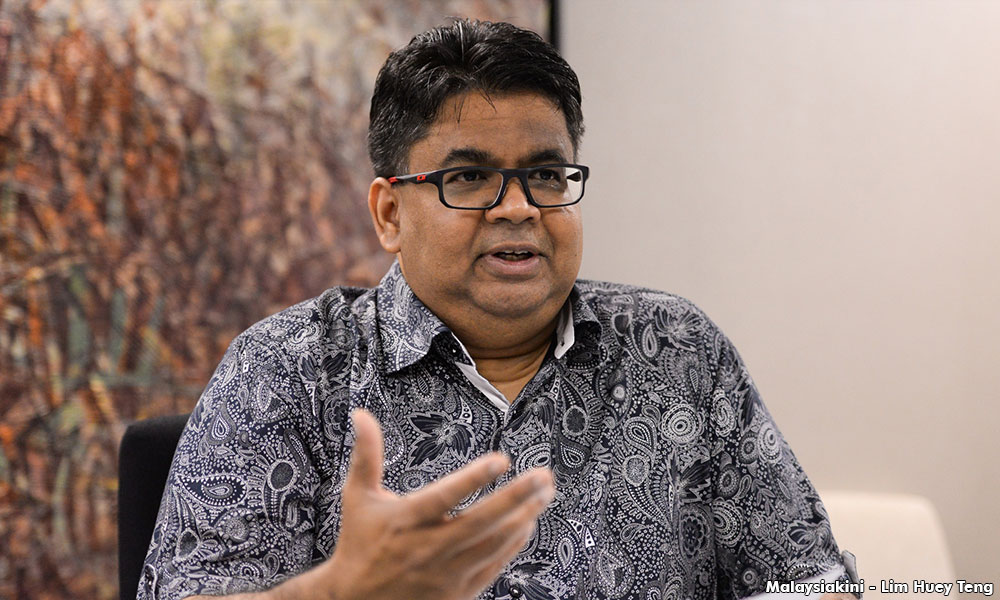
There has been some debate of late over whether elected representatives should receive honorifics like ‘datuk’ or ‘datuk seri’, or even whether elected representatives should be addressed as ‘yang berhormat’.
Speaking as an individual who staunchly supports egalitarianism, I say the feudal practice of awarding titles should stop. But in reality, is this going to happen? I very much doubt it.
In which case, MPs and state assemblypersons should heed the suggestion made by DAP secretary-general Lim Guan Eng who called the BN-inherited culture unhealthy. They should take it upon themselves to decline the titles when awarded.
The BN way
Understandably, in our society which has become so divided in multiple ways, including in terms of status, holding an honorific like ‘datuk’ or ‘datuk seri’ can be a boon.
It accords the holder the illusion of grandeur, which often does translate into the gaining of superficial respect and special treatment from obsequious grovelers, minions and the feudal-minded. Therefore, accepting such an award can be too tempting to resist.
But resist they should. Because some ruling or tacit understanding of a moratorium on titles from all award-bestowing institutions is unlikely to come to pass, it remains incumbent upon elected representatives to decline these titles on their own accord.
After all, it makes no sense for them to accept titles just because, as in the recent examples of DAP lawmakers in Malacca and Sabah, they have been made ministers, deputy ministers or excos. That was the BN way.

Moreover, these tyro ministers haven’t even proven their mettle yet. How have they distinguished themselves as being worthy of titles that are supposed to be given in recognition of distinguished service to the state?
What if soon afterwards they turn out to be corrupt, falling prey to the temptations that come with their office, or are just plain incompetent?
A mockery of the system
And so, it seems clear to me that our elected representatives, ministers, deputy ministers and excos would be setting a sterling example in the so-called ‘new Malaysia’ that the current Pakatan Harapan government is talking of establishing if they don’t take on titles.
In any case, the excessive preponderance of people with titles like ‘datuk’, ‘datuk seri’ and ‘tan sri’ is already making a mockery of the system.
I don’t need to recount the age-old joke of throwing a stone into a crowd and hitting a few ‘datuk’ in order to illustrate how the existence of so many title-holders has cheapened its value and the institutions that dish them out.
I also don’t need to recount the countless claims made in public that some of these titles can actually be bought with cash. And that many of the holders have turned out to be crooks, gangsters, and lords of the underworld.
And it doesn’t need repeating that some ‘datuk’ let their titles get to their heads and demand special treatment wherever they go – expecting doors to open more easily, and chiding the lesser mortals who have the temerity not to address them by their honorifics.
That’s the one thing I can’t stand. Who the hell do they think they are to expect being treated differently just because they have a title appended to their names? How could they even consider the title conferred upon them by the state as being more important than the name given to them by their own parents?
Addressing someone by their title instead of their name makes the holder more distant, more entity than human.
'The respectable?’
So how do we address our elected representatives?
I’ve never felt comfortable calling any of them ‘yang berhormat’ (the respectable), and have hardly ever used it. Many of them have not been worthy of respect whatsoever. In fact, they have actively earned disrespect, and in some cases, much worse.
For example, I was asking a friend just the other day how anyone could possibly address the Pekan MP as ‘yang berhormat’. They’d have to be blind followers, or returnees from outer space.

Two weeks ago, Bersatu strategist Rais Hussin (photo) tweeted a suggestion that ‘YB’ be turned into ‘yang berkhidmat’ (the dutiful) instead, which he said might give these elected representatives a “new sense of service to the people rather than demanding respect from the people.”
After all, he pointed out, “the people pay their salaries.”
That’s a good suggestion, and the principle behind it is something I uphold. But it still means addressing those people as ‘YB’. Which they could still take to mean ‘yang berhormat.’
I’d rather address them by their given names, which makes their relationship with the rakyat personal and egalitarian. We are all in the same boat, and now in the same team, working for the good of the country. Why should these beings be placed on a higher level than the rakyat?
However, if there is still a need to address them in some formal way, but keep their relationship with the rakyat more fraternal and redolent of mutual respect, I would suggest ‘saudara’ or ‘saudari’.
It translates into ‘brother/sister’, ‘friend’ or ‘comrade’. It has a nice, warm ring to it. It bonds the addresser and the addressee. And it’s also part of Malaysian culture.
This should be extended to ministers as well, even the prime minister. Instead of calling them ‘datuk’, ‘datuk seri’, ‘tan sri’ or ‘tun’, let’s call them either by name or ‘saudara’. Emphasise that we are all working for the same cause of developing our country.
It may sound radical, but it will be transformative. Fitting for the so-called ‘new Malaysia.’
KEE THUAN CHYE is the author of the upcoming The People’s Victory, which will be released in mid-November. - Mkini


No comments:
Post a Comment
Note: Only a member of this blog may post a comment.